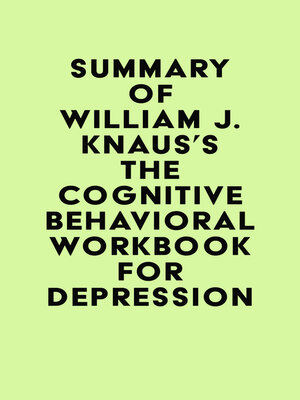
Sign up to save your library
With an OverDrive account, you can save your favorite libraries for at-a-glance information about availability. Find out more about OverDrive accounts.
Find this title in Libby, the library reading app by OverDrive.



Search for a digital library with this title
Title found at these libraries:
| Loading... |
Please note: This is a companion version & not the original book. Book Preview:
#1 Depression is not in charge of your life. You can use the coping skills you learn to defeat depression and become a more effective, resilient, and nondepressed you.
#2 Depression comes from the Latin word depressio, which means to press down and make lower. It is a disorder that can affect anyone. It is estimated that about 19. 7 percent of the US population suffered from a mild to severe depression over a seven-year period in a 2009 study.
#3 Depression has been around for a long time. The Egyptians had paintings of people with depression, and the Greeks thought that depression was a natural but interruptive phase of living.
#4 Diathesis-stress theory is a core principle in Aaron Beck's theory of depression. You must have both vulnerability for depression and a triggering situation to get depression. The diathesis can be a neurochemical event, negative early experience, or something else. Stress can come from a job loss, divorce, the death of a mate, or an accumulation of hassles.






